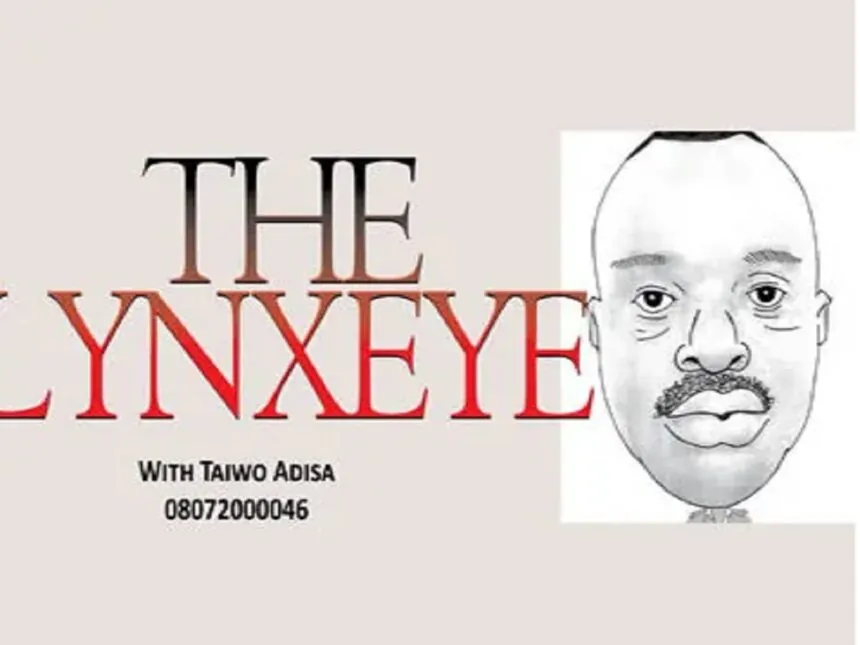By Taiwo Adisa
WE don’t all sleep and face the same direction, so the Yoruba say in one of their popular proverbial offerings. In the last week, however, happenings in Ibadan, Oyo State, have defied that saying. The city of Ibadan had risen in unison to support the ascension of the 44th Olubadan of Ibadanland, Oba Rashidi Adewolu Ladoja, to the throne of his forbears. That’s something Western-style democracy cannot offer any territory because deliberate opposition is an innate part of that democracy. But Ibadan has shown that Yoruba, even African democracy, can readily offer unity of purpose in abundance.
In the one week preceding the coronation of Oba Ladoja, the city was seized from different locations by activities lined up to usher the king to the throne. Residents readily welcomed the events and bore the discomfort to traffic flow with equanimity. There were processions that dislocated market settings and other crowd-pulling activities around the city, but no one uttered a word of displeasure despite the fact that the people of Ibadan are strangers to huge traffic.
ALSO READ: 2027: North-Central Demands Presidential Ticket, Says Region Will Heal Nigeria Political Divisions
On the streets of Ibadan on Thursday, youths and old people thronged the very busy Secretariat Road, after they had gone to pay homage to Oba Ladoja at his Ondo Street home in Bodija. Movement of traffic was stalled on both sides of the road, but residents donning broad smiles waved at one another as they backslapped profusely in celebration of the mood of the moment. They were all giving honour to the man, whom they believed truly deserved their praise and support. A man who was bound to mount the throne as Olubadan of Ibadanland from September 26. It was a strange find in a city that is known for its rustiness and slow-paced anger, but like a viper, it promptly releases venom of death once its tail is bruised. All the effusive joy can only be traceable to the fact that the new monarch is well accepted by every stratum of the city. The people were happy indeed for Oba Ladoja.
What we saw in Ibadan last week had played out over the years in that city each time a popular king emerged on the throne. It was a true picture of the Ibadan (Yoruba) democracy, which got largely truncated by the colonialists who took over most of the structures of political power in Africa upon the seizure of African territories. What the remainder of Ibadan democracy tells us is that, were it not for the colonialists who hurried Africans out of the defined political system set up by their forebears, the people of this continent were truly capable of establishing sophisticated systems that could stand the test of time. The defunct Oyo Empire was an example of the unique rulership system that the Yorubas were capable of engineering. The Ibadan chieftaincy system is an offshoot of the Yoruba political system, which got overrun by colonialism. The Benin Kingdom had equally fashioned a political system that withstood the vicissitudes for centuries, just as many kingdoms across the space we call Nigeria today and even across Africa.
It is not only strange to see the whole town sleeping and facing the same direction in a Western-style democracy, but the acrimonies that often erupt during electioneering campaigns are such that they breed relentless antagonism and unending enmity. Opposition is a Siamese of the colonial legacy of democracy and the way it is practiced in Nigeria, deception, crude opposition, sycophancy, and all that, less edify the Omoluabi ethos are firmly rooted therein.
The coronation of Oba Ladoja cannot come at a better time than now. Especially on the heels of introspection on African democratic development by the Goodluck Jonathan Foundation in Ghana, two weeks ago. At the programme, former President Olusegun Obasanjo and Dr. Goodluck Jonathan, Nigeria’s president from 2010 to 2015, and Ghanaian leader, John Dramani Mahama, declared that democracy was failing in Africa, with Obasanjo declaring that Western-style democracy demands a review in Africa. The frustrations of these leaders were not unfounded. Jonathan had seen opposition rail against him, even when he continued to exhibit his usual gentlemanly nature. He said that the greatest threat to African democracy was self-perpetuating antics of the leaders, adding that any leader who fails to deliver democracy dividends should be voted out through proper elections.
Jonathan said: “Democracy in the African continent is going through a period of strain and risk of collapse unless stakeholders come together to rethink and reform it. Electoral manipulation remains one of the biggest threats in Africa.
“We in Africa must begin to look at our democracy and rethink it in a way that works well for us and our people. One of the problems is our electoral system. People manipulate the process to remain in power by all means.
“If we had proper elections, a leader who fails to perform would be voted out. But in our case, people use the system to perpetuate themselves even when the people don’t want them.
“Our people want to enjoy their freedom. They want their votes to count during elections. They want equitable representation and inclusivity. They want a good education. Our people want security. They want access to good healthcare. They want jobs. They want dignity. When leaders fail to meet these basic needs, the people become disillusioned.”
In his speech on the all-important subject, the President of Ghana, Mahama, told the gathering that democracy would not survive unless Africans actively worked to protect and strengthen it. He also spoke about weak institutions, elite capture, exclusion, leadership deficits, and external interference, which he said erodes citizens’ trust, adding that: “Democracy will not survive if we don’t work for it. We need a reset of democracy and governance to ensure accountability. Anybody who wants to serve must be accountable to the people. Our citizens are tired of corruption, misgovernance, and lack of opportunities.
“To renew democracy, we must strengthen institutions, deliver development, and educate our citizens. We must protect the media and civic space. A free press is democracy’s immune system. Democracy dies when citizens lose faith, when leaders abandon integrity, and when institutions succumb to capture. But democracy can be renewed when citizens rise to defend it.”
Former President Obasanjo, who has been outspoken about the failings of democracy on the African continent, again submitted that democracy could collapse in Africa if it is not subjected to urgent reforms.
According to him, the way and manner Africans practice democracy is not sustainable without reforms. He said that despite the original conception of democracy as “government of the people, by the people, and for the people,” the practice had drifted from the vision to encompass all the ills noted by Mahatma above.
He said: “Democracy dies because democracy has refused to be reformed. Three aspects of democracy cannot continue to exist the way it was as defined by the American president: government of the people, by the people, and for the people. In that definition, democracy is meant to be for all people. And if democracy will not die and be buried, democracy must be reformed in context, in content, and in practice.”
He said that the travails of democracy in Africa are likened to a Yoruba proverb, which translates to “the insect that is killing the vegetable lives with the vegetable,” adding that democracy was being destroyed by its practitioners.
Obasanjo submitted further: “The thing that is killing democracy and will kill it is the practice of democracy,” and added that: “All the essentials that should be part and parcel of democracy are being ignored or bastardised in such a way that democracy has failed to deliver. And democracy cannot deliver unless it is reformed. If it is not reformed, it will not only fail, it will die and be buried.”
He, however, submitted that there appears to be no alternative to democracy despite its inadequacies, adding that reforms were needed to redeem the system of government. He asked: “Is there any real substitute for democracy as it was originally designed, government of the people, all the people. What we have now is a government of some people, by some people, over all the people?”
To Obasanjo, the identification of democracy as a government of the majority is also a misnomer because that marginalises and relegates the minorities.
Obasanjo queried again thus: “And they talk of a government of democracy as a government of the majority. If you talk of the government of the majority, what do you do with the minority? Then the minority is not part of the people?”
Yes, history has shown that monarchies, no matter how popular at the start, could breed totalitarianism and despotism, but the widespread acceptance of a monarch creates a ready room for responsibility by the subjects (citizens). Such ready-made acceptance of responsibility was on display during the coronation process of Oba Ladoja. We had reports indicating that several Ibadan indigenes did not wait for the government to provide funds for different activities. Many readily dipped their hands into their pockets to support the weeklong programmes. What this does is to create a sense of belonging in the citizen and then readiness to contribute to the well-being of the state.
That is not the same in the democracy that we practice. A key issue with our democracy, especially in the Fourth Nigerian Republic, is the lack of readiness of the citizens to take responsibility for their government. People elect governors and leave the actors to do as they like, despite constitutional provisions of checks and balances. Citizens stay indoors during elections, resigning to fate that their vote may not count or that their votes would not necessarily guarantee good governance, because “all politicians are the same.” The people have failed to realise that a man who refused to vote during the election has empowered bad governance because those who vote rightly or wrongly would determine his fate. Since Africa lost the opportunity to build a home-grown democracy through colonialism, what is left is to listen to Obasanjo, Jonathan, and Mahatma-reform your democratic practice, reform the minds of the citizens, and get democracy working for the people.




